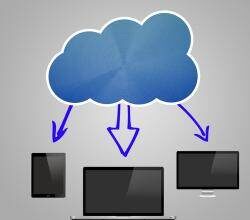As reported in Travel Procurement, the competition in the automated expense reporting space has increased dramatically over the past few years. According to author Mary Ann McNulty:
While some products are still delivered as software, most are software-as-a-service, cloud-based or, increasingly, mobile apps.
This should come as no surprise because expense reporting is an ideal application for the cloud.
As reported in Travel Procurement, the competition in the automated expense reporting space has increased dramatically over the past few years. According to author Mary Ann McNulty:
While some products are still delivered as software, most are software-as-a-service, cloud-based or, increasingly, mobile apps.
This should come as no surprise because expense reporting is an ideal application for the cloud.
Expense Reports are an Ideal Cloud ERP Application
The cloud supports expense reporting by providing access from anywhere. Access from anywhere allows on-the-fly entry to reduce the time between when expenses are incurred and when they are reported. Reporting accuracy improves significantly when the time to entry is reduced.
The cloud supports expense reporting by providing scalable computing power. In large organizations, many people wait until the end of the week to enter time sheets and expense reports. By using a cloud application, the additional traffic and processing can be easily accommodated to avoid delays.
The cloud enables centralized, real-time processing so accountants, budget personnel, and approvers to spot and correct problems quickly. In addition, policy and procedure changes can be instantly implemented when using a web-based cloud system.
Software Implementation Statistics
In the article Expense Reporting Solutions Multiply: Cloud, ERP, Mobile, Procurement Suites Among Options, author Mary Ann McNulty also points out some interesting facts about the automated expense reporting industry:
- A Cost of Control 2010 survey of 550 financial directors and CFOs reports that 72 percent claimed to increase automation or plan to do so in the next 12 months.
- Aberdeen Group published a survey of 175 companies in February 2010 where 52 percent of enterprises were focused on increasing visibility of their T&E spending, 40 percent on improved compliance, 38 percent on reduced processing time and costs, and 36 percent on managing travel budget restrictions.
- The same Aberdeen study said that 20 percent of enterprise customers still process expenses manually, 30 percent are partially automated, 45 percent are fully automated, and 5 percent outsource their expense reporting. Although not part of this statistic, the percentage of manually processes expenses for mid-sized business is probably even higher.
The fact that 50% of firms are manual or partially automated provides a large opportunity for companies to do it right the first time by implementing a web-based or cloud-based expense reporting solution. Companies with older automation systems facing maintenance payments should consider upgrading to a web-based or cloud-based system. The savings in time, accuracy, policy-making, and reporting may easily pay for the cost of the upgrade.






